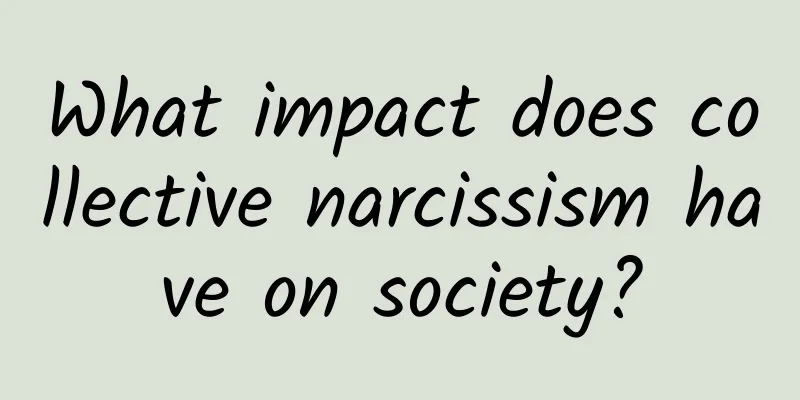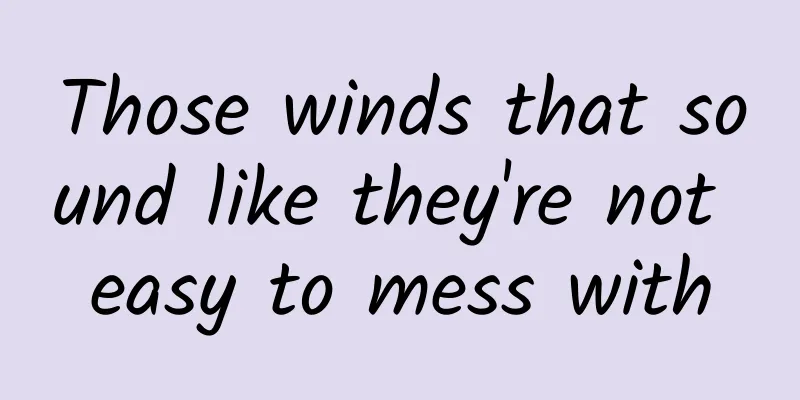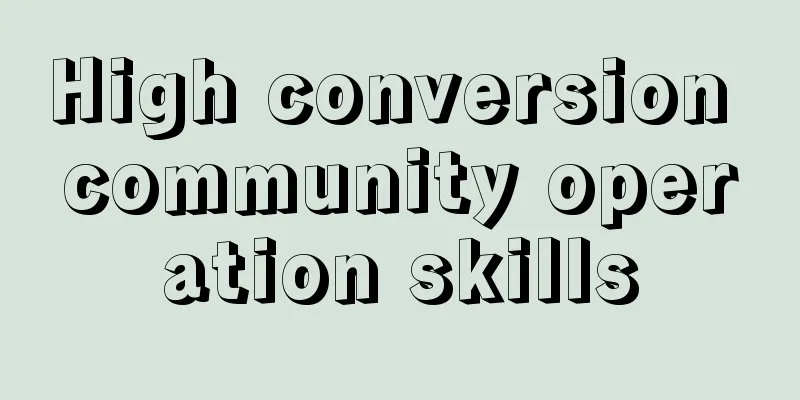What impact does collective narcissism have on society?

|
© Caravaggio/The Atlantic Leviathan Press: I personally agree with the author's analysis of the "internal purification" of collective narcissistic groups: I think of the rise and fall of the Weimar Republic and the Nazi Empire, during which Hitler "purified" the Aryans internally and incited extreme nationalism externally to build momentum for war. Of course, in order to establish the confidence of the group, it is necessary to first ensure that the so-called superiority of itself is unshakable. Only in this way can the authorities establish the legitimacy of the war under this name (I recommend Sontheimer's book "Anti-Democratic Thoughts of the Weimar Republic" published by Yilin Press in 2017). Originally, group identity is a common phenomenon, which usually comes from people's confidence in the values of their group. However, if people pursue value identity excessively and blindly, it is very easy to go to extremes. Moreover, the most paradoxical thing is that a certain group's eagerness to gain recognition from the outside world is actually caused by the group's generally fragile and unconfident psychology. In 2005, psychologist Agnieszka Golec de Zavala was studying extremist groups, trying to understand why people participated in terrorist attacks, when she noticed something that fit well with what 20th-century scholars Theodor Adorno and Erich Fromm had called “group narcissism.” De Zavala defines it as "an excessive belief in the exaggerated superiority of one's group and a belief that this superiority is not fully recognized by the outside world," in which group members desire recognition but this desire is not satisfied. Initially, she thought this phenomenon was extreme but important, so she created a "collective narcissism scale" to measure the severity of collective narcissistic thoughts. The scale includes statements such as "My group deserves special treatment" and "I am determined to make my group get the respect it deserves", and respondents can score according to their agreement with the statement. (www.sakkyndig.com/psykologi/artvit/zavala2009.pdf) Sixteen years later, de Zavala is now a professor at the University of Social Sciences and Humanities in Warsaw, Poland, and a lecturer at Goldsmiths College, University of London, where she leads research on collective narcissism. She has realised that this is by no means an extreme phenomenon, as it seems to exist in any kind of group - religious groups, political groups, groups of men or women, racial groups, ethnic minority groups, as well as sports teams, clubs or fan groups. She says that the global phenomenon of collective narcissism today scares her. (scholarworks.umass.edu/cgi/viewcontent.cgi?article=1991&context=dissertations_2) Collective narcissism is not simply tribalism. Humans are naturally communal animals, and that’s not necessarily a bad thing. Having a healthy social identity is good for personal well-being. However, collective narcissists are often more likely to develop out-group biases than in-group loyalty. In the most extreme cases, collective narcissism can fuel political extremism and even violence. (kar.kent.ac.uk/80195/1/Main%20Document%20BJSP%20KAR%20FINAL.pdf) (onlinelibrary.wiley.com/doi/full/10.1111/pops.12569) (pubmed.ncbi.nlm.nih.gov/31343222/) In everyday life, collective narcissism can cause groups to close their ears and view the “other” group as one-dimensional and homogeneous. The best way to avoid this is to teach people how to be proud of their group—but not obsessed with seeking approval. Different groups may have different narratives about their superiority—they may believe they are the most moral, the most cultured, the most talented, the most powerful, or the most democratic. They may believe their group's superiority is God-given or that they have earned it through past experience. But in the end, collective narcissists hate other groups and are extremely sensitive to any perceived intergroup threat. (onlinelibrary.wiley.com/doi/full/10.1111/pops.12569) Finally, collective narcissism often breeds prejudice: in a Polish study, for example, participants who scored higher on a scale of collective narcissism were more likely to be anti-Jewish, while in a study of Americans, those who scored higher were more likely to have negative attitudes toward Arab immigrants. (psycnet.apa.org/doiLanding?doi=10.1037%2Fpspp0000260) (journals.sagepub.com/doi/10.1177/1368430211420891) (journals.sagepub.com/doi/10.1177/0146167210380604) Collective narcissists tend to respond in strong, often aggressive ways when they perceive threats from out-groups. In Portugal, some collective narcissists who believed Germany had a higher status in the European Union than their own country “delighted in Germany’s economic crisis” and supported “hostile actions” against Germans. Collective narcissists also glorify in-group members and overlook their moral flaws. A recent study conducted in Poland, the United Kingdom, and the United States found that those high in collective narcissism were more likely to view group members’ actions as ethical, such as provoking an argument in a bar, as long as the behavior was in the group’s interest. (psycnet.apa.org/record/2016-45042-001) (www.sciencedirect.com/science/article/abs/pii/S0022103120304388) But group members don’t always benefit from this thinking: collective narcissists are wary of “internal enemies” who they see as harmful to the group. Ironically, some studies have found that collective narcissists are actually more likely to withdraw from the group for personal gain, and they will use group members to achieve their own goals. (journals.sagepub.com/doi/10.1177/0963721420917703) (kar.kent.ac.uk/80195/1/Main%20Document%20BJSP%20KAR%20FINAL.pdf) A classic display of Mussolini's hubris. © Bk Kent Week When people think of narcissism, they often conjure images of bravado, boasting, or self-importance. But psychologists, including myself, have identified a more vulnerable form of narcissism that involves a fragile and uncertain sense of self-worth, deep feelings of shame and mistrust, and typically hostility and grandiosity. In some countries, such as the United States, there is a strong correlation between collective narcissism and grandiose narcissism, but overall, those with higher levels of vulnerable narcissism are more likely to fall into collective narcissism. Collective narcissists may be obsessed with gaining approval from the group because they are unsure of their own value from a personal perspective and desperately want external affirmation. They may also lack emotional repair ability. Collective narcissism is associated with sensitivity to negative environmental stimuli and negative emotions, which may overwhelm pro-social instincts - especially towards people outside the group. (onlinelibrary.wiley.com/doi/full/10.1111/pops.12569) Ultimately, however, collective narcissism is not a successful coping strategy, as research has shown that it does not improve self-esteem. In fact, collective narcissists may amplify their vulnerable narcissistic traits, believing that the failure to recognize the superiority of the group means that their own merits are not recognized. Preliminary research results do support this. In one experimental study, researchers-triggered increases in collective narcissism increased participants’ levels of vulnerable narcissism. This suggests that humans have the potential to become collective narcissists. We can all be swept up in it, especially when narcissism is normalized and widespread within a group. (pubmed.ncbi.nlm.nih.gov/31448939/) (journals.sagepub.com/doi/10.1177/0963721420917703) Nowhere is this more evident than in politics. Referring to the rise of collective narcissism after World War I, Fromm wrote: “Collective narcissism is a phenomenon of the greatest political significance… A nobody becomes the most important person if he ties his social identity to his country or transfers his personal narcissism to his fellow citizens.” To be clear, patriotism is not necessarily collective narcissism. It is entirely possible to have a healthy sense of pride in the uniqueness of one’s own country, political group, or culture while having no desire to suppress other cultures in order to demonstrate the superiority of one’s own. (onlinelibrary.wiley.com/doi/10.1002/jts5.69) Collective narcissism is ubiquitous among political parties—on the left and the right—but it seems particularly attractive to populists. Across the world, collective narcissism at the country level is strongly associated with support for populist parties and politicians. One study found that levels of collective narcissism were the second-strongest predictor of Trump’s approval rating in the 2016 U.S. presidential election (after party affiliation). It was also associated with support for Trump’s followers attacking the Capitol and for Trump’s undemocratic attempts to stay in office (a longitudinal study even found that collective narcissism predicted the prevalence of conspiracy theories in the 2016 election). Collective narcissism has also been linked to the Brexit vote in the UK, anti-environmentalism in Poland, and anti-EU attitudes in Hungary. (www.researchgate.net/publication/342739859_Collective_narcissism_as_a_framework_for_understanding_populism) (academic.oup.com/poq/article-abstract/82/1/110/4885411?redirectedFrom=fulltext) (onlinelibrary.wiley.com/doi/10.1002/ejsp.2496) (www.sciencedirect.com/science/article/abs/pii/S0272494418302640) © The Independent In smaller groups or more mundane settings, collective narcissism can still reek. In one study, sports fans high in collective narcissism were more likely to feel threatened by news reports critical of their favorite team and more likely to say they would hurt the reporter or “teach him a lesson.” In another study, students high in collective narcissism were more likely to engage in retaliatory aggression against those who gave them a negative review of their college—in a hypothetical scenario where they had the opportunity to be a student evaluator, they rejected research grant applications from those who gave them a negative review. (scholarworks.umass.edu/cgi/viewcontent.cgi?article=1991&context=dissertations_2) (pubmed.ncbi.nlm.nih.gov/23586408/) So how can we curb collective narcissism and promote intergroup harmony? The good news is that just as we can have healthy levels of self-esteem, we can also develop healthy ingroup love—when members feel good about themselves and take pride in the group’s achievements, but don’t obsess over having others recognize the group’s superiority. Positive ingroup satisfaction is associated with increased happiness, and is linked to greater life satisfaction, positive emotions, social connectedness, and gratitude. (www.ncbi.nlm.nih.gov/pmc/articles/PMC6383489/) To be sure, the roots of people’s feelings about their group are not entirely up to the individual. According to de Zavala, collective narcissism is more likely to flourish among people with low self-esteem, and is more likely to arise in environments of extreme poverty or marked social inequality, and in the presence of dominant individuals who believe their group is being treated unfairly. But because some narcissistic personality traits predict collective narcissistic thoughts in many contexts, personality changes are something worth watching for. It is not easy to successfully observe this, but it is not impossible. People can cultivate self-transcendent emotions - prosocial emotions that connect people to emotions beyond themselves, such as gratitude, awe and compassion. (onlinelibrary.wiley.com/doi/10.1002/jts5.69#) In a preliminary study, de Zavala and colleagues at the Bias Lab found that collective narcissists who participated in a six-week “gratitude” training designed to strengthen the ability to regulate negative emotions and cultivate gratitude exhibited less sexism, homophobia, and prejudice against immigrants. As I recently wrote, existential gratitude is a tool we all have at our disposal to help us regulate negative emotions and find meaning in trauma. (sites.gold.ac.uk/prejudicelab/) In another Bias Lab study, then-graduate student Martyna Komorowska found that participants expressed less prejudice against Syrian refugees than a control group after watching a moving video designed to trigger kama muta, a sudden, empathetic emotion. (onlinelibrary.wiley.com/doi/full/10.1111/pops.12569) It's unclear how long these effects will last, but these studies do suggest that collective narcissism is not inevitable. It can take root at an early age, but it doesn't develop further. Children can be taught that social identities don't necessarily require external validation to have meaning, so they can develop a sense of worth from within without feeling superior. This benefits others, too: People with healthy levels of self-esteem are often motivated to use their personal strengths to benefit group members. They don't obsess over putting others down. You can’t force everyone to see the value of your group, just as you can’t force everyone to see your own individual value. But you can control how you see yourself, and how you see the group and the world. The only way out of collective narcissism is to move up, beyond the sense of power in the group, and connect with others—even if it makes it easier to think of yourself as special. By Scott Barry Kaufman Translated by Yord Proofreading/Amanda Original text/www.theatlantic.com/family/archive/2021/11/group-narcissism/620632/ This article is based on the Creative Commons License (BY-NC) and is published by Yord on Leviathan The article only reflects the author's views and does not necessarily represent the position of Leviathan |
<<: The Essence of Gravitation
Recommend
Hongmeng is on the road, and Huawei is on board
After more than a decade of rapid development and...
Apple releases iOS 17.0.2 official version again
Apple just pushed out iOS 17.0.2 last Friday, whi...
Zhongshan travel mini program development and customization details, what are the tourism WeChat mini programs?
The emergence of mini programs has simplified the...
Example: How to design an operational activity H5?
This article can meet the following needs: Want t...
What can the Internet of Things do for enterprises?
Internet of Things (IoT) and big data are the nex...
Event Operation|Pinduoduo’s red envelope customer acquisition strategy!
Previously, we analyzed Pinduoduo ’s user portrai...
Sky-observing artifact | Big Ear Telescope: Detailed explanation of Wow! Signal 6EQUJ5, was it sent by aliens?
Author: Hatton (student of the Science Voice Know...
Space and surplus coexist, and the Matthew effect in the power battery industry begins to emerge
With national support and promising prospects, an...
How much does it cost to develop the Siping appointment mini program? What is the quote for developing Siping appointment mini program?
The main factors affecting the price of mini prog...
Several bald spots appeared on my head overnight. Is alopecia areata really "alopecia areata"?
Actress Shen Mengchen once posted a Weibo post sa...
New Media Sharing | A 10,000-word WeChat Official Account Operation Guide
1. User portrait It refers to a virtual represent...
Gartner predicts AI spending will reach $644 billion by 2025
Spending on generative artificial intelligence (G...
A case lesson from the O2O market: How startups balance branding and operations!
Recycling, a familiar yet unfamiliar term, is an ...
Fingerprint recognition explosion: Who sets the rules of the game?
1. Become famous early Within a year of iPhone 5s...









